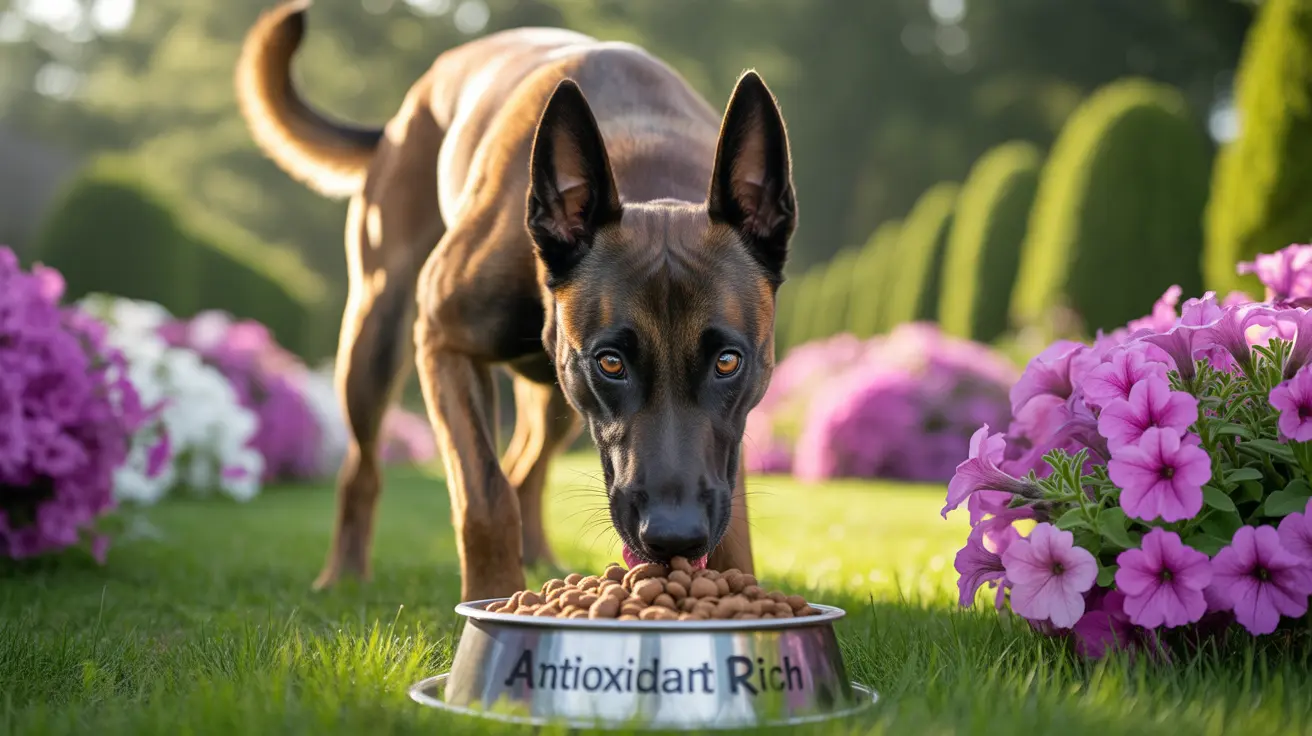Introduction
Understanding the importance of dog food with antioxidants can significantly impact your pet's health and longevity. These powerful compounds play a crucial role in protecting your dog's cells from damage, supporting immune function, and promoting healthy aging. As more pet owners recognize the value of antioxidant-rich nutrition, quality dog food formulations have evolved to meet this growing demand.
In this comprehensive guide, we'll explore why antioxidants are essential for your dog's well-being, how they work, and the best ways to ensure your furry friend gets the right balance in their diet.
Understanding Antioxidants in Dog Food
Antioxidants are specialized molecules that protect your dog's body from harmful free radicals – unstable compounds that can damage cells and accelerate aging. Think of antioxidants as your dog's internal defense system, neutralizing these threats before they can cause harm.
These protective compounds come in both natural and synthetic forms, with many premium dog foods now incorporating a strategic blend of both types to maximize benefits and preservation.
Key Benefits of Antioxidant-Rich Dog Food
Immune System Support
Antioxidants play a vital role in strengthening your dog's immune system, helping them fight off infections and disease more effectively. Dogs fed antioxidant-enhanced diets typically show improved immune responses and better overall health outcomes.
Cognitive Function
Research has shown that older dogs consuming antioxidant-rich diets demonstrate better cognitive performance and slower mental decline. This includes improved memory, learning ability, and maintenance of normal behavior patterns.
Anti-Aging Properties
By protecting cells from oxidative damage, antioxidants help slow the aging process, keeping your dog more active and vibrant throughout their senior years.
Essential Antioxidants in Quality Dog Food
Natural Sources
- Vitamin E from plant oils
- Vitamin C from fruits and vegetables
- Beta-carotene from carrots and sweet potatoes
- Polyphenols from blueberries and other berries
- Selenium from fish and whole grains
Synthetic Antioxidants
While natural antioxidants are preferred, some synthetic versions are safely used in dog food to ensure longer shelf life and consistent potency. These are carefully regulated and tested for safety.
Choosing the Right Antioxidant-Rich Dog Food
When selecting dog food with antioxidants, look for products that list specific antioxidant sources in their ingredients. Premium brands often feature a variety of fruits and vegetables, along with documented levels of key antioxidants.
Consider your dog's age, activity level, and health status when choosing an antioxidant-enhanced formula. Working dogs or senior pets may benefit from higher levels of certain antioxidants.
Frequently Asked Questions
What are the benefits of antioxidants in dog food for my pet's health?
Antioxidants in dog food provide multiple health benefits, including improved immune function, better cognitive performance, slower aging, and protection against cellular damage. They help maintain vital organ health and support overall wellness.
How can I ensure my dog is getting enough antioxidants in their diet?
Choose high-quality commercial dog food that specifically lists antioxidant sources in the ingredients. Look for foods containing fruits, vegetables, and vitamin E supplements. Consult with your veterinarian about appropriate supplementation if needed.
Which specific antioxidants are most beneficial for dogs, and where can they be found?
The most beneficial antioxidants include Vitamins E and C, beta-carotene, and selenium. These can be found in ingredients like blueberries, sweet potatoes, fish oil, and green vegetables, which are often included in quality dog foods.
Can adding antioxidant-rich foods to my dog's meals improve their overall health?
Yes, adding dog-safe, antioxidant-rich foods as treats or meal toppers can boost your pet's antioxidant intake. However, these should be given in moderation and with veterinary approval to maintain a balanced diet.
Are there any risks associated with excessive antioxidant intake in dogs?
While antioxidants are generally safe, excessive supplementation can lead to nutrient imbalances or toxicity. Stick to recommended amounts in commercial dog food unless otherwise directed by your veterinarian.
Conclusion
Incorporating dog food with antioxidants into your pet's diet is a smart investment in their long-term health and well-being. By choosing high-quality products with documented antioxidant sources and following proper feeding guidelines, you can help ensure your dog enjoys the maximum benefits of these powerful protective compounds.






